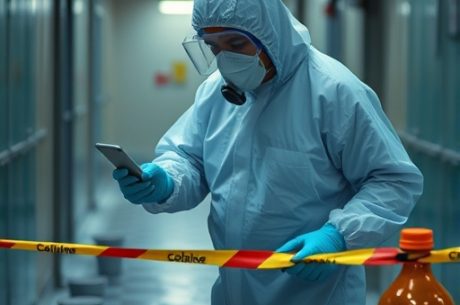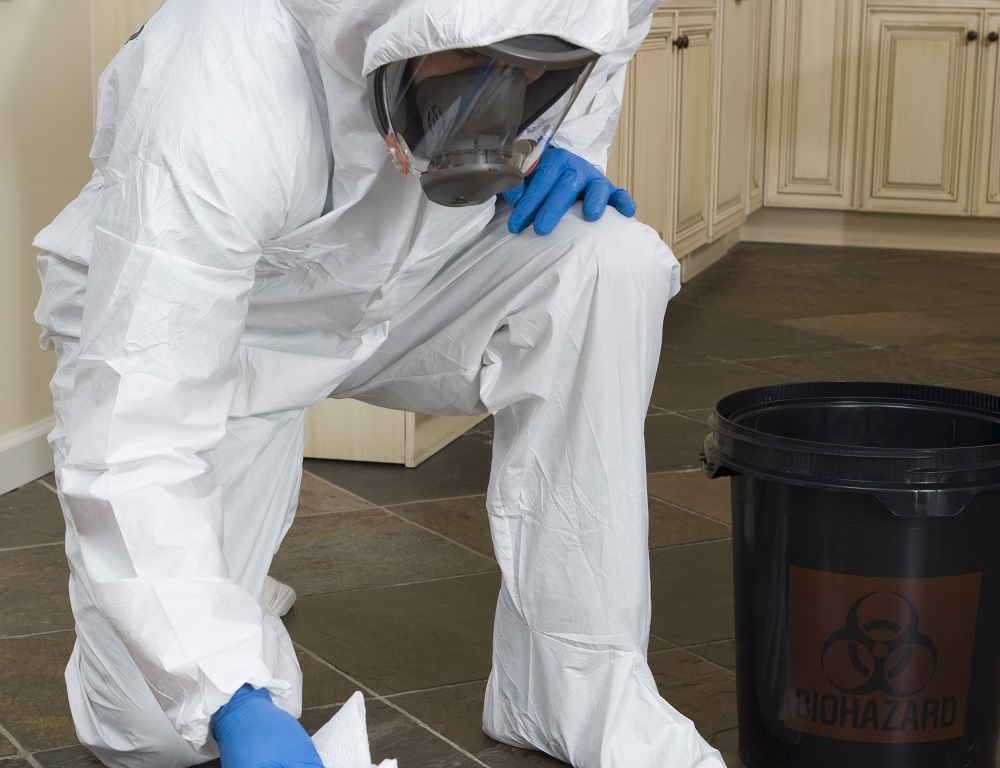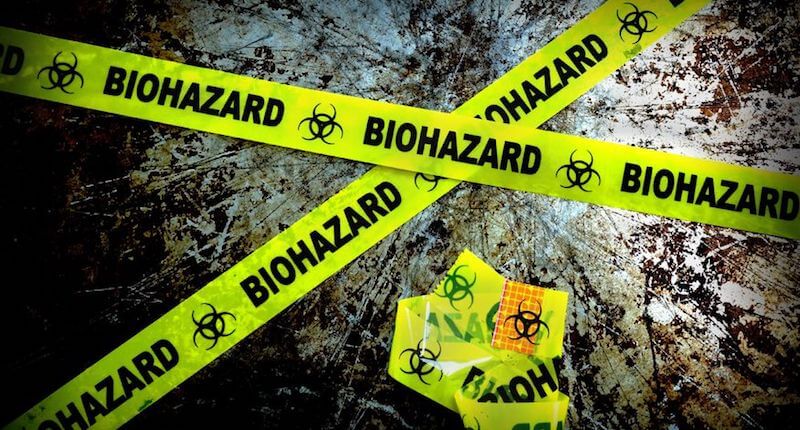Table of Contents

Dealing with the aftermath of a suicide is emotionally devastating for families and friends. When tragedy strikes, families must contend not only with their grief but also with the necessary biohazard cleanup after a suicide. This process is crucial to restore a safe and sanitary environment, but it also comes with emotional and health challenges. Professional biohazard cleanup services offer families the support, sensitivity, and expertise required to handle these situations, helping them take a step toward healing.
Why Professional Biohazard Cleanup After a Suicide is Essential
Cleaning up after a suicide involves biohazard risks that the general public may not be fully aware of. Bloodborne pathogens, bacteria, and other contaminants can remain in affected areas, posing health risks to anyone who comes in contact with them. For these reasons, it’s essential to rely on biohazard cleanup professionals who are trained in safety protocols and equipped with the tools needed to decontaminate thoroughly.
Beyond the technical aspects, there is also a significant emotional toll that cleanup can place on families. By hiring a biohazard cleanup team, families can focus on processing their loss rather than being forced to handle the traumatic task themselves.
Steps Involved in Biohazard Cleanup After a Suicide
Understanding the process involved in biohazard cleanup after a suicide can help families feel more prepared. Here is an overview of the steps professionals typically take to ensure safety, sanitation, and respect for those affected:
1. Initial Assessment and Planning
When a biohazard cleanup team arrives at the location, they first conduct a detailed assessment of the scene. This assessment helps determine the extent of contamination and the resources required for cleanup.
The team works closely with the family or property owners, answering questions and explaining the process. This initial stage emphasizes compassion and sensitivity, helping families feel supported.
2. Setting Up Safety Precautions
Before any cleaning begins, the cleanup crew sets up safety protocols to protect themselves and others from potential exposure to hazardous materials. This involves wearing personal protective equipment (PPE), including gloves, masks, and full-body suits.
The team also establishes containment areas to prevent contamination from spreading to unaffected parts of the property.
3. Removal of Biohazardous Materials
During the cleanup after suicide, the team carefully removes any biohazardous materials, including blood, bodily fluids, and other contaminated items. Proper disposal of these materials is critical, as they must be handled according to strict health and safety regulations to prevent any biohazard risks.
The professionals follow a step-by-step approach to remove materials safely, ensuring every contaminated item is accounted for and disposed of responsibly.
4. Deep Cleaning and Sanitization
After removing visible biohazards, the next step involves thorough cleaning and disinfection of all affected areas. The team uses hospital-grade cleaning agents and advanced equipment to sanitize surfaces, ensuring that all bacteria and pathogens are neutralized.
This phase of biohazard cleanup after a suicide is crucial to restore a clean environment and prevent any lingering health risks. Cleanup teams often go over areas multiple times to guarantee a complete sanitization.
5. Odor Removal
The nature of biohazard contamination can leave strong and unpleasant odors that linger even after initial cleaning. Professional teams use specialized deodorizers and equipment, such as ozone machines, to completely eliminate any odors from the environment.
This step ensures the property is fully restored, leaving no reminders of the traumatic event for family members.
6. Final Inspection and Clearance
Once the biohazard cleanup after a suicide is complete, a final inspection is conducted to ensure that the property meets health and safety standards. This inspection includes testing surfaces for any remaining contaminants to confirm a safe environment.
The team provides the family with documentation of the cleanup, along with guidance on any further steps that may be necessary.
The Emotional Support Aspect of Biohazard Cleanup After Suicide
Biohazard cleanup teams understand that their work goes beyond physical cleaning. Compassion is at the core of every step, from the initial phone call to the final inspection. Recognizing the trauma families are going through, professionals approach each case with respect, discretion, and care. Experienced biohazard cleanup providers often work with grief counselors or can refer families to mental health professionals for additional support.
Why DIY Cleanup Is Not Recommended
While it may be tempting for some to try to handle the cleanup after a suicide themselves, this approach poses serious health risks and can add to the emotional trauma. Biohazard cleanup professionals are trained not only in handling hazardous materials but also in managing emotional sensitivity. Their presence allows family members to focus on grieving and healing, rather than facing a potentially overwhelming task.
Choosing the Right Biohazard Cleanup Team
When selecting a biohazard cleanup provider, it’s essential to choose a company that demonstrates compassion and professionalism. Look for providers with certifications in biohazard management, OSHA compliance, and an understanding of local regulations regarding hazardous materials. Reading reviews, speaking with other families who have used the service, and consulting with mental health support organizations can help you make an informed choice.

Moving Forward with Compassionate Support
Biohazard cleanup after a suicide is an overwhelming and emotional process. By relying on professionals, families can receive the support and expertise they need during this difficult time. A dedicated biohazard cleanup team not only ensures that the environment is restored safely but also provides families with the peace of mind that comes from knowing they’re not alone in managing the aftermath.
When tragedy strikes, it’s crucial to reach out for help and understand that professionals are there to provide the specialized biohazard cleanup after a suicide that respects both your health and your emotional needs.
For professional biohazard cleanup in Miami, Coral Gables or any area in South Florida, call us on +1 305 894-4343. We are available 24/7.


